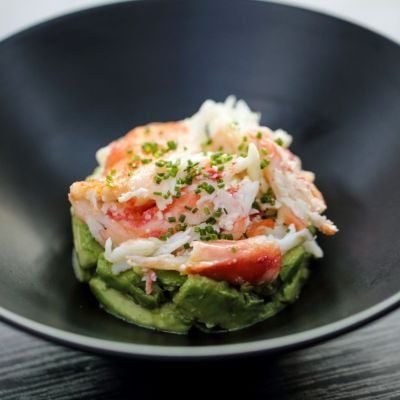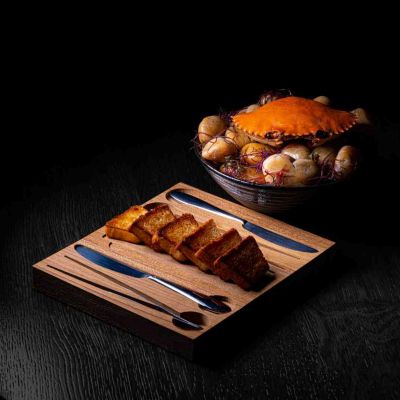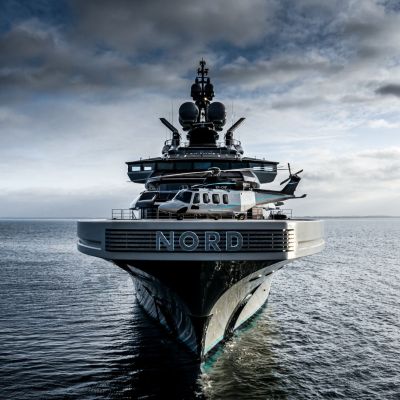Art For Sharks

Shark-fin imports are down in Hong Kong thanks to widespread campaigns, including billionaire George Wong’s ‘On Sharks and Humanity’ touring exhibition.

Like many Hong Kongers of his generation, billionaire George Wong used to enjoy a bowl of shark-fin soup at banquets and events. “Yes, I liked eating shark fin for many years,” says the eldest son of CS Hwang, founder of Hong Kong developer Parkview. “But it comes to a point when you realise the damage you are doing to society and the planet.”
Wong is at the Hong Kong launch of his world-touring arts exhibition, ‘On Sharks and Humanity’, conceived through his Parkview Arts Action foundation. It’s an event designed to raise awareness of the plight of the ocean’s diminishing shark population, through a variety of art forms in a multifaceted, multidisciplinary approach. Shark finning is the practice of cutting off a shark’s fin, often while it is still alive, to be dried and sold, usually for use in soup considered a delicacy in Asian countries. Hong Kong handles at least 50 percent and possibly up to 80 percent of the world trade in shark fin, with the major suppliers being Europe, Taiwan, Indonesia, Singapore, United Arab Emirates, the US, Yemen, India, Japan, and Mexico.
Already the exhibition has toured through Monaco, in 2014 at the Oceanographic Museum, before travelling to Moscow and the National Museum of China in Beijing in 2015. ‘On Sharks and Humanity’ was shown at The Parkview Museum in Singapore this year and is showing currently at Hong Kong’s Maritime Museum on the central harbourfront, until November. Some of the artworks include Liu Zining’s oil painting Blue, a hyper-realistic image of a shark’s eye, and Zheng Lu’s Butterfly in Love with the Flower, a large stainless-steel sculpture of a shark fin made up of web-like bubbles. Future destinations for the exhibition include Shenzhen, Bangkok and Vienna.
At the exhibition, Wong is the epitome of understatement, dressed in casual trousers, plain sneakers and a simple sports watch. His silvery shoulder-length mane is offset by the luminous yellow t-shirt he — and his entire team — are wearing. The front of the shirt is printed with a child’s hand-painting of a crying shark, with the words: “Don’t kill me!” It is signed by his grandson Marcus, who was five at the time he drew it.
It underlines the dreadful truth that certain shark populations have been reduced by 98 percent in the last 15 years as a result of this terrible industry. If shark finning continues, says Wong, certain populations will be extinct by the time Marcus is a grown-up.
“The real tragedy is that there are over 100 million sharks killed every year for shark fin. I was really shocked when I heard that. Celebrities, artists and people need to tell the world to stop eating shark fin. We need to get the message out,” says Wong.
“We’re all connected to what happens on our Earth. It affects the food chain and the health of the world’s oceans. By taking out the predators it knocks everything out of kilter, so it’s more than just ‘Save the Sharks’.”
Wong is a proud Hong Konger but he admits there is a problem with the status symbol and tradition attached to shark-fin soup in the city’s dining rooms. “It will take time,” he concedes, “I can’t expect that tomorrow it will be gone.”
With him is Alex Hofford of international non-profit organisation WildAid, whose mission is to end the illegal wildlife trade and reduce the demand for wildlife products, such as shark fin. Hofford says that while there is a long way to go, there is evidence that campaigns are having an effect. “Shark imports into Hong Kong have gone down by 43 percent since 2010, in large part due to a shipping and airline campaign we have run since 2012. Now, we’re targeting the restaurant trade. It’s no longer about getting the public to stop eating it, it’s about getting the restaurants to take it off the menu.”
He added that WildAid is targeting Maxim’s restaurant group, which continues to sell shark-fin soup on its set menu. Maxim’s is 50 percent owned by the publicly listed Jardine Matheson Group. United Airlines and FedEx also continue to distribute shark fins from global destinations to Asia, he adds.
“It’s a generational thing,” Hofford says. “A lot of young people are swearing off it now; it’s cruel, it’s unethical, it can come from illegal sources. But it’s the elder people who are harder, they’re offline and a difficult demographic to reach. So that’s why we’re calling on the vendors to stop selling it and the distributors to ban it.”
This article originally appeared in Billionaire's September Issue themed on The Journey. To subscribe contact








